Tuesday, January 14
| 9:00 a.m.- 10 a.m. | Coffee & Conversation / ICL Announcements, Alumni Lounge, Putnam University Center, 3rd floor Join the group for coffee and refreshments, and to meet new members, as we begin the Spring semester. |
| 10:00 a.m.–12:00 p.m. | "How Music Helps the Developing and Aging Brain," Larry S. Sherman [Solveig Holmquist], Ford 122
|
| 1:00–3:00 p.m. | "Cascadia, the Big One," Dr. Althea Rizzo [Valerie Keever], Ford 122
Dr. Althea Rizzo joined Oregon Emergency Management in 2008 as the Geologic Hazards Program Coordinator after completing a one year National Weather Service-funded program as Tsunami Coordinator for the City of Lincoln City. She is a member of the National Tsunami Hazard Mitigation Program and serves as the co-chair of the Warning Subcommittee. She is a member of the Cascadia Region Earthquake Workgroup and is the co-chair of the Education and Mitigation Subcommittee. Education: Washington State University |
Thursday, January 16
| 10:00 a.m.-12:00 p.m. | "Fire on the Mountain," George Adkins , Ford 122
George Adkins will do a 10-15 minute introduction to the video, and will lead a short follow-up discussion. |
| 1:00-3:00 p.m. | "On the Edge of Extinction: Language Loss Worldwide and in Oregon," Dr. Gregory D.S. Anderson, Ph.D [Kasia Quillinan], Ford 122
|
Tuesday, January 21
| 10:00 a.m.-12:00 p.m. | "On Paper Wings," Film Presentation, Ilana Sol [Peter Rassmussen], Ford 122
In the spring of 1945, a Japanese balloon bomb claimed the lives of the only people killed on the continental U.S. as the result of enemy action during WWII. Forty years later, the decision to fold a thousand paper cranes would unite the Japanese and American civilians who were involved in and affected by this incident. “On Paper Wings” is the story of four Japanese women who worked on balloon bombs, the families of those killed in the U.S., and the man whose actions brought them all together forty years after WWII, and the balloon bomb project. Ilana Sol is a filmmaker and archival researcher living in Portland, Oregon. She has worked in the film industry for fifteen years on a variety of independent, educational and commercial projects. Her passion lies with documentary filmmaking, and she has enjoyed producing and researching film exhibits for the Buffalo Bill Museum, the Smithsonian, and performing archival research for multiple feature films including "Queen of the Sun," "Big Joy," and "The Winding Stream." When her hobby of historical research led her to find out about the Japanese balloon bombs, she soon found herself spending hundreds of hours researching these bizarre weapons, and traveling thousands of miles to meet with those affected by them. She is the recipient of grants from the Oregon Council for the Humanities, the Regional Arts and Culture Council, and the Oregon Heritage Commission. “On Paper Wings” is her first film. |
| 1:00–3:00 p.m. | "This is Your Brain...This is Your Brain on Parasites," Lisa Sardinia [Tom Zook] , Ford 122
Lisa Sardinia is an associate professor in the Department of Biology at Pacific University. She received a B.S. in Biology from Whitworth College, a Ph.D. in Microbiology from Montana State University and a J.D. from the University of California, Hastings College of the Law. Following graduate school, she was awarded a National Cancer Institute research fellowship at the University of California, San Francisco studying molecular genetics before beginning a teaching career that has included stints at San Francisco State University, St. Olaf College, Foothill College and Pacific University. At Pacific University, she teaches Molecular Biology and Microbiology in the College of Arts and Sciences, Basic Science for Optometry in the College of Optometry and Genetics in the Physician Assistant Studies program. She currently holds an endowed chair (the Thomas J. and Joyce Holce Professorship in Science) and recently received the S.S. Johnson Foundation Award for Excellence in Teaching. Her research with students has focused on oculopathogenic bacteria and their response to antibiotics when grown in biofilms, alternative antimicrobial therapies, and genetic analysis of the cytochrome P450 gene of primitive fishes. She is a founding board member of the Pacific Institute for Ethics and Social Policy, and is frequently asked to speak to community groups about the ethics of stem cell research and genetic testing. |
Thursday, January 23
| 10:00 -11:00 a.m. | "The Story of Human Language Video Series, Lecture 15: 'Dialects—Where Do You Draw the Line?'," Prof. John McWhorter , Ford 122 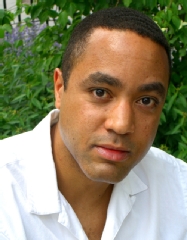
The labels language and dialect are, in practice, arbitrary, and necessarily so. Dialects of one language can be called separate languages simply because they are spoken in different countries, such as Swedish, Norwegian, and Danish. Different languages can be called dialects because they are spoken in the same country and written in the same system, such as Chinese “dialects,” which are as different as French and Spanish. Often, dialects change slightly from region to region until people at one end of the chain cannot converse with people on the other end; where one draws the line between dialect and language here becomes meaningless. The truth is that there is no such thing in any definable sense as a “language.” Tens of thousands of dialects are spread across the globe, many of them akin enough to be perceptible as variations on “the same thing”—but even here, only in variable degrees. The presentation will be hosted by Kay Gerard. |
| 11:00 a.m.–12:00 p.m. | " Laurel and Hardy," Gene Fletcher , Ford 122 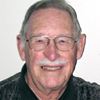 Description TBA Description TBA |
| 1:00-3:00 p.m. | Great Decisions:Threat Assessment [J. Flaming], Ford 122
Trevor Jacobson, Roz Shirack, Caroline Milbank and Jeanette Flaming will lead the presentation and discussion. For additional information go to www.greatdecisions.org. |
Tuesday, January 28
| 10:00 - 11:00 a.m. | "How to Listen to and Understand Great Music, Video Lecture 17: The Enlightenment and an Introduction to the Classical Era," Dr. Robert Greenberg , Ford 122 
The dramatic difference between the music of the late Baroque Era and the new Classical Era is brought into high relief when we compare a fugue by J.S. Bach and a piano sonata by Beethoven. The difference is that between the objective and the subjective, between music about process and music surface complexity, on the one hand, and vocal lyricism and studied simplicity, on the other. Given that music is a mirror, these dramatic musical differences were a product of societal change. The 18th century saw the evolution of Enlightenment Humanism, cosmopolitanism, the Enlightenment cultural doctrine of accessibility and naturalness, the rise of a new middle class with its Enlightenment-inspired attitude toward music, the growth of musical amateurism, and the emergence of musical Classicism. |
| 11:00 a.m. -12:00 p.m. | "Mozart - Quintessentially Classic or Utter Renegade?"Solveig Holmquist , Ford 122
|
| 1:00-3:00 p.m. | "Belfast: Both Sides Now," Bill Meulemans [Tom Zook], Ford 122
Bill Meulemans (Ph.D. 1970 University of Idaho) was an Adjunct Professor of Political Science at Portland State University. He taught contemporary courses on the conflict in Northern Ireland. Professor Meulemans has held long-term faculty positions at The Queen's University of Belfast and Southern Oregon University. His published works include Making Political Choices: An Introduction to Politics, and he has a book forthcoming entitled, Belfast: Both Sides Now!. He was a staff aide in the U.S. House of Representatives for the Committee on Education and Labor. He has served on many boards and commissions in the United States and Northern Ireland, been a political consultant in more than 100 political campaigns, and served as a political organizer for several federal and state funded agencies. He has a B.S. degree in Political Science from the University of Wisconsin, and M.A. and Ph.D degrees in Political Science from the University of Idaho. His academic distinctions include a Danforth Foundation Fellow, a National Defense Fellow, and a Fullbright Scholar to Israel. To read the first chapter of Bill Meuleman's book. |
Thursday, January 30
| 10:00 a.m.–12:00 p.m. | "The Oregon Coast: One Writer's Muse," Matt Love [Lois Rosen], Ford 122
Matt Love is a lifelong educator and publisher of Nestucca Spit Press. He’s the author/editor of ten books about Oregon, including the Beaver State and Newport Trilogies. In 2009, Love won the Oregon Literary Arts’ Stewart H. Holbrook Literary Legacy Award for his contributions to Oregon history and literature. He lives on the Oregon Coast and teaches photography, creative writing and journalism at Newport High School. His latest book is Of Walking in Rain. He’s currently working on a novel about teaching. |
| 1:00–3:00 p.m. | "Rock Art in Southern Africa", Andries Fourie [Sharon Wright], Ford 122 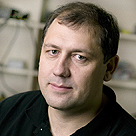
The lecture will provide an introduction to the rock art of the hunter-gatherers known today as the Southern San or Bushmen, with specific reference to sites in South Africa and Namibia. The tradition of San rock painting and engraving in the region stretches from about 27,500 BP until the 1870s, and includes abstract, realistic and symbolic images. The images provide a fascinating view of the practices, worldview and mythology of the San, and their intimate relationship with the land. The lecture will examine the historical and ethnographic context of the images as well as their interpretation. 2002 MFA (Art Studio), University of California, Davis |


 Larry Sherman is Senior Scientist in the Division of Neuroscience and a Professor in the Department of Cell and Developmental Biology, in the Neuroscience Graduate Program and the Program in Molecular and Cellular Biology at the OHSU School of Medicine. He received a B.A. in 1986 and an M.A. in 1987, both in Biology from Reed College, then went on to receive a Ph.D. in Cell Biology and Anatomy from OHSU in 1993. He conducted post-doctoral research at the Institut für Genetik at the Forschungszentrum in Karlsruhe, Germany, then became an Assistant Professor in the Department of Cell Biology, Neurobiology & Anatomy at the University of Cincinnati School of Medicine in 1998. He joined the center in 2002. He serves on a number of national grant review boards, is on the editorial board of the journal GLIA, and is the President of the Oregon Chapter of the Society for Neuroscience.
Larry Sherman is Senior Scientist in the Division of Neuroscience and a Professor in the Department of Cell and Developmental Biology, in the Neuroscience Graduate Program and the Program in Molecular and Cellular Biology at the OHSU School of Medicine. He received a B.A. in 1986 and an M.A. in 1987, both in Biology from Reed College, then went on to receive a Ph.D. in Cell Biology and Anatomy from OHSU in 1993. He conducted post-doctoral research at the Institut für Genetik at the Forschungszentrum in Karlsruhe, Germany, then became an Assistant Professor in the Department of Cell Biology, Neurobiology & Anatomy at the University of Cincinnati School of Medicine in 1998. He joined the center in 2002. He serves on a number of national grant review boards, is on the editorial board of the journal GLIA, and is the President of the Oregon Chapter of the Society for Neuroscience.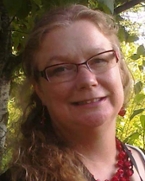 This talk will introduce members to the Cascadia Subduction Zone, the largest natural hazard facing Oregon. Dr. Rizzo will discuss the current understanding of the impact of a Cascadia subduction earthquake on Oregon. Discussion will center on strategies to mitigate the impact on Oregonians and to save lives.
This talk will introduce members to the Cascadia Subduction Zone, the largest natural hazard facing Oregon. Dr. Rizzo will discuss the current understanding of the impact of a Cascadia subduction earthquake on Oregon. Discussion will center on strategies to mitigate the impact on Oregonians and to save lives.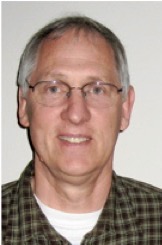 Fire on the Mountain is a documentary film about the exploits of the Tenth Mountain Division, an elite group of mountain soldiers who fought decisive battles against the Nazis in the Italian Alps during the final days of World War II. The film also attempts to keep up with alumni from the Tenth who have made a name for themselves, and meets with partial success (they note the founder of Nike, the president of the Sierra Club and the first owners of Vail Ski Resort, but seem to have left out one Robert Dole, presidential candidate, who lost the use of his right hand serving in the Tenth). The video is 72 minutes long.
Fire on the Mountain is a documentary film about the exploits of the Tenth Mountain Division, an elite group of mountain soldiers who fought decisive battles against the Nazis in the Italian Alps during the final days of World War II. The film also attempts to keep up with alumni from the Tenth who have made a name for themselves, and meets with partial success (they note the founder of Nike, the president of the Sierra Club and the first owners of Vail Ski Resort, but seem to have left out one Robert Dole, presidential candidate, who lost the use of his right hand serving in the Tenth). The video is 72 minutes long.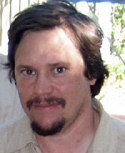 Founder and Director of the Living Tongues Institute for Endangered Languages, a non-profit organization dedicated to the documentation, revitalization, and maintenance of endangered languages, Dr. Anderson specializes in the languages of Siberia and tribal languages of India. He has degrees in Linguistics from Harvard (A. B. 1989) and the University of Chicago (PhD 2000), and has conducted extensive fieldwork into the languages of the Altai Sayan group and among speakers of Munda languages in India. Greg has done fieldwork in Nigeria on Eleme, on Koro Aka, Hruso and other Tibeto-Burman languages in Arunachal Pradesh, in Bolivia on Kallawaya and Chipaya, in Paraguay on Yshyr (Chamacoco), Mak'a and Toba-Qom, on nearly a dozen languages belonging to eight different families in Papua New Guinea, in Chile on Tsesungun (Hulliche), and in Oregon on Siletz Dee-Ni. He has published widely in the fields of historical linguistics, descriptive grammar, morphology, verb typology, and the linguistics of Munda, Salishan, and Ogonoid languages.
Founder and Director of the Living Tongues Institute for Endangered Languages, a non-profit organization dedicated to the documentation, revitalization, and maintenance of endangered languages, Dr. Anderson specializes in the languages of Siberia and tribal languages of India. He has degrees in Linguistics from Harvard (A. B. 1989) and the University of Chicago (PhD 2000), and has conducted extensive fieldwork into the languages of the Altai Sayan group and among speakers of Munda languages in India. Greg has done fieldwork in Nigeria on Eleme, on Koro Aka, Hruso and other Tibeto-Burman languages in Arunachal Pradesh, in Bolivia on Kallawaya and Chipaya, in Paraguay on Yshyr (Chamacoco), Mak'a and Toba-Qom, on nearly a dozen languages belonging to eight different families in Papua New Guinea, in Chile on Tsesungun (Hulliche), and in Oregon on Siletz Dee-Ni. He has published widely in the fields of historical linguistics, descriptive grammar, morphology, verb typology, and the linguistics of Munda, Salishan, and Ogonoid languages.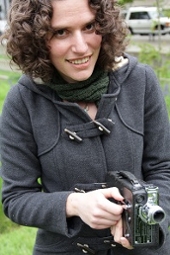
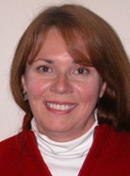 Zombie cockroaches, suicidal crickets, bodyguard caterpillars. Scientists have noted that a number of parasites are able to modify the behavior of their insect hosts. Recent evidence suggests that behavior of other animals, including humans, may be modified in sometimes subtle ways by parasites. During this presentation, we’ll look at some of the most-studied insect-parasite interactions and then analyze more recent data on parasite behavior modification in mammals.
Zombie cockroaches, suicidal crickets, bodyguard caterpillars. Scientists have noted that a number of parasites are able to modify the behavior of their insect hosts. Recent evidence suggests that behavior of other animals, including humans, may be modified in sometimes subtle ways by parasites. During this presentation, we’ll look at some of the most-studied insect-parasite interactions and then analyze more recent data on parasite behavior modification in mammals. Threat Assessment- How can the United States address the challenges of a weak economy, homegrown terrorism and nuclear proliferation? What threats and opportunities are presented by the ascendancy of China and by regime change in the Middle East? Are there additional threats? How do we prioritize them? How do we pay for our attempt to limit their effects?
Threat Assessment- How can the United States address the challenges of a weak economy, homegrown terrorism and nuclear proliferation? What threats and opportunities are presented by the ascendancy of China and by regime change in the Middle East? Are there additional threats? How do we prioritize them? How do we pay for our attempt to limit their effects?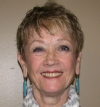 Using clips from the film "Amadeus", as well as both biographical and contemporary writings about this fascinating figure who is often considered not only the best composer of the Claassical Era era but also its best representative, we will examine the musical genius whose life ended so tragically early. Our discussion will center on attempting to separate fact from legend, entertaining anecdote from more probable truth. There will be plenty of time for ICL member input!
Using clips from the film "Amadeus", as well as both biographical and contemporary writings about this fascinating figure who is often considered not only the best composer of the Claassical Era era but also its best representative, we will examine the musical genius whose life ended so tragically early. Our discussion will center on attempting to separate fact from legend, entertaining anecdote from more probable truth. There will be plenty of time for ICL member input!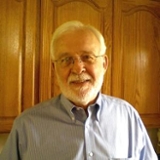 “Belfast: Both Sides Now," by Bill Meulemans, tells the story of the Northern Ireland conflict through the eyes of both communities. Each side has an equal voice inside one book. The author writes in a journalistic style. He went out on the street to find out why the conflict started and why it will not end soon. When these warring groups are dissected, it becomes clear that they are driven by an ancient dispute that feeds on itself. Meulemans lived and worked among the working-class people of Belfast for 11 years while he was on the politics faculty of The Queen's University of Belfast. The book is for the reader who does not have an extensive background on the subject. It is 400 pages and is available on Amazon.
“Belfast: Both Sides Now," by Bill Meulemans, tells the story of the Northern Ireland conflict through the eyes of both communities. Each side has an equal voice inside one book. The author writes in a journalistic style. He went out on the street to find out why the conflict started and why it will not end soon. When these warring groups are dissected, it becomes clear that they are driven by an ancient dispute that feeds on itself. Meulemans lived and worked among the working-class people of Belfast for 11 years while he was on the politics faculty of The Queen's University of Belfast. The book is for the reader who does not have an extensive background on the subject. It is 400 pages and is available on Amazon.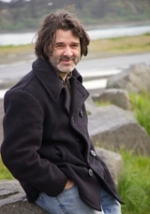 Eighteen years ago Matt Love moved to the Oregon Coast. There, he found a unique literary voice inspired by the ocean, beaches, rain, Sometimes a Great Notion, Conde McCullough's bridges, and other indigenous coastal stories. Join him for an interactive multi media presentation that traces the arc of a literary life that has led to 11 books about Oregon and a Stewart Holbrook Literary Legacy Award.
Eighteen years ago Matt Love moved to the Oregon Coast. There, he found a unique literary voice inspired by the ocean, beaches, rain, Sometimes a Great Notion, Conde McCullough's bridges, and other indigenous coastal stories. Join him for an interactive multi media presentation that traces the arc of a literary life that has led to 11 books about Oregon and a Stewart Holbrook Literary Legacy Award.